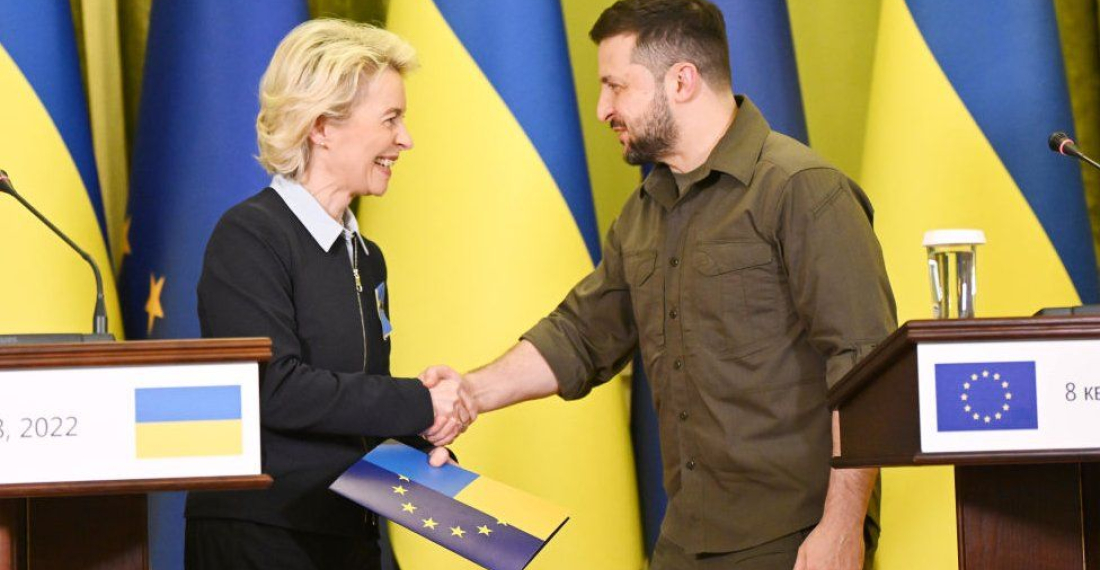As the one-year anniversary of Russia’s re-invasion of Ukraine approaches, Ukrainian officials are expressing concerns of a new major offensive following a recent large-scale Russian mobilisation. This comes as Kyiv prepares to host EU officials on Friday (3 February) for a summit on the embattled counry's progress towards EU membership.
Ukrainian Defence Minister Oleksii Reznikov estimates that Russia has mobilised up to 500,000 troops, despite official numbers claiming the mobilisation of 300,000 Russian troops. The estimates come after Ukrainian officials have announced high military activity on the Russian side of its border.
Russia also celebrates its "Defender of the Fatherland Day" on 23 February, just one day before the one-year mark of the so-called "special military operation".
Furthermore, Reznikov says he has received intelligence reports that Russia is seeking to seize the entire Donbas region before the end of spring this year, although NATO Secretary General Jens Stoltenberg has been more cautious in his forecast. Stoltenberg has expressed concerns that Russia will not stop if it manages to take the Donbas, while highlighting the importance of a united European approach in militarily supporting Ukraine due to the fact that Russia is likely receiving significant reinforcements from its own allies in Iran and North Korea.
EU summit in Kyiv is unlikely to offer membership breakthrough for Ukraine
Later this week, amidst worries over a renewed Russian large-scale invasion, a summit focusing on Ukrainian relations with the European Union will be held in Kyiv. As EU representatives are arriving in the war-torn nation, Ukrainian Prime Minister Denys Shmyhal has announced that Ukraine has an ambitious goal of joining the EU within the next two years.
Many fear that increasingly optimistic and hopeful attitudes spread by EU officials, including European Commission President Ursula von der Leyen, could lead to future disillusionment among Ukrainian officials as their membership bid comes up against objections from some sceptical EU countries.
EU member states including Germany, France, and Italy have warned about overly ambitious attitudes regarding Ukraine giving the wrong signals, while highlighting that there are still extensive legal and regulatory frameworks that Ukraine must abide by before becoming a member of the Union, and that there are no shortcuts for Ukraine.
Despite recent anti-corruption campaigns initiated by Ukrainian President Volodymyr Zelensky, the EU has not yet provided a public assessment of Kyiv’s efforts to meet the EU's standards necessary for accession. Meanwhile, the European Commission has provided Ukraine with a set of recommendations for its accession to the Union, including further measures to fight corruption, the tightening of laws against money laundering, and restricting the excessive influence of Ukrainian oligarchs.
This week’s summit hopes to show solidarity with Ukraine as the country comes up to marking one year since the start of Russia's full-scale invasion. Disagreements aside, the summit comes after several weeks of European and global allies making large military aid pledges to Ukraine. Holding such a high-level summit in the middle of a warzone will likely offer significant symbolic weight to the summit, which intends to show the Kremlin that Kyiv still has significant support in the West.
source: commonspace.eu with BBC
photo: Getty Images/BBC






